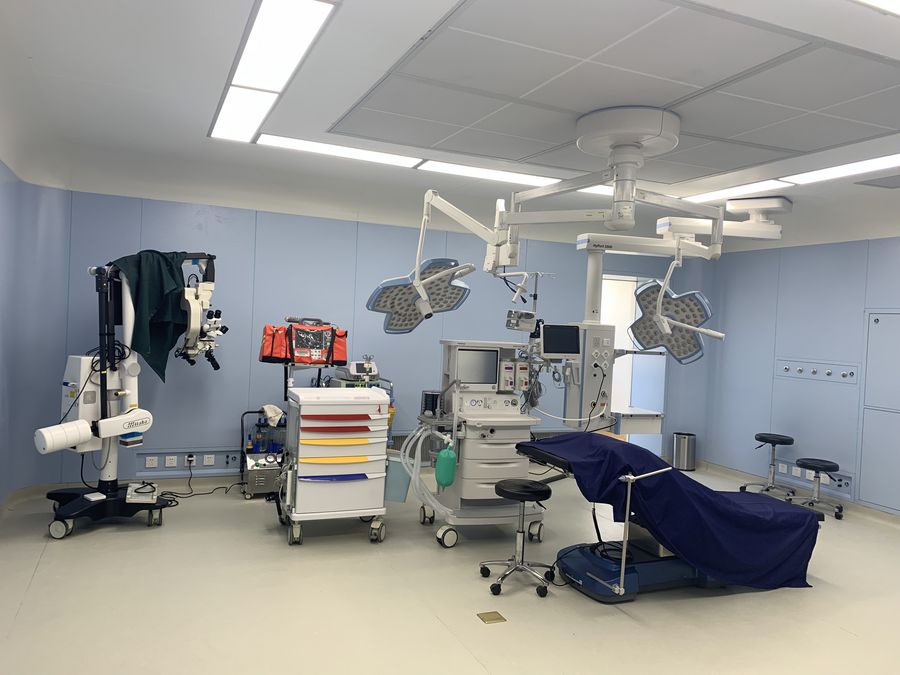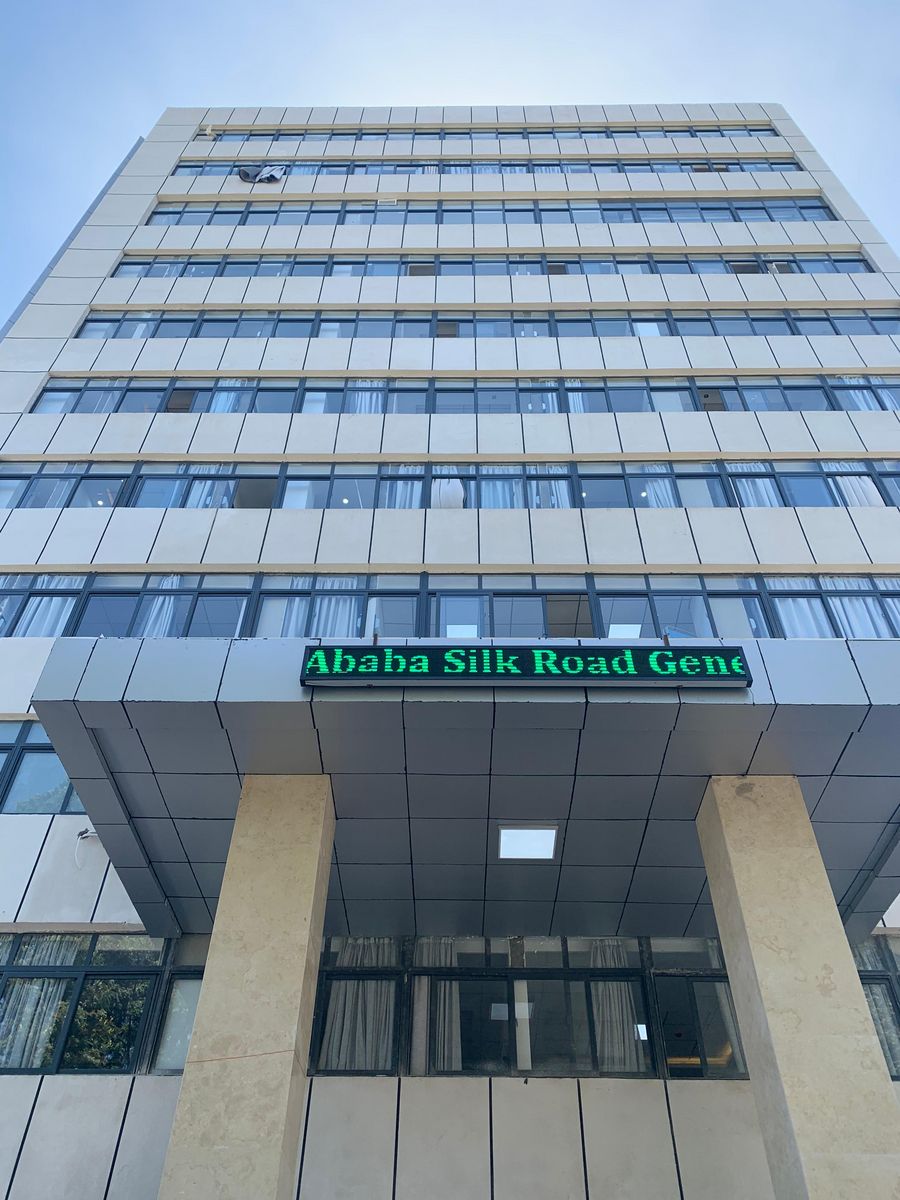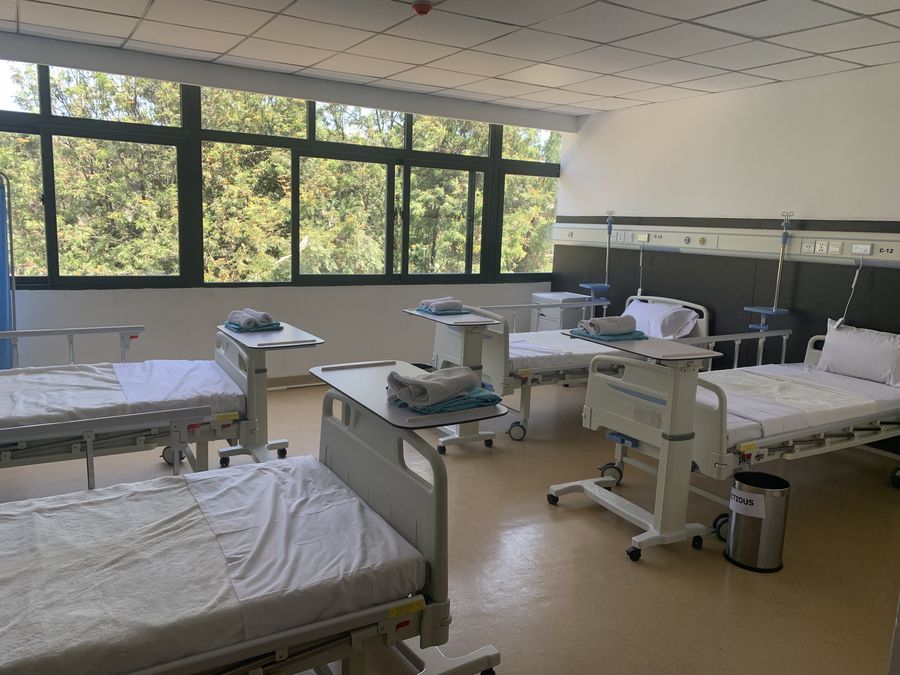The new Chinese-invested Addis Ababa Silk Road General Hospital will boost health care delivery in Ethiopia.
ADDIS ABABA, Nov. 6 (Xinhua) -- A Chinese-invested high-standard hospital, named Addis Ababa Silk Road General Hospital, was inaugurated on Tuesday in Ethiopia's capital Addis Ababa.
A colorful ceremony was held and attended by senior government officials of Ethiopia, the African Union and other prominent personalities.
Built and equipped with state-of-the-art technologies, the hospital project was completed with a total investment of 33 million U.S. dollars. The project was undertaken by Chinese firm, Afei Holding Co. Ltd.
With a highly specialized physician team of 200 employees from 16 countries, the hospital not only provides high-quality health care, but also a good working environment, said Wang Jianhua, the hospital's medical director.

The photo shows advanced surgical equipment in the Silk Road General Hospital in Addis Ababa, capital of Ethiopia, Nov. 5, 2019. (Xinhua/Wang Shoubao)
With 100 beds, the hospital has multi-disciplinary international health professionals, state-of-the-art ICUs, multi-functional operating theatres, digital subtraction angiography, and the latest model of surgical microscopy.
This is the first phase of the project, and with the next project, the hospital will have 600 beds and other components.
Liu Yu, economic and commercial counselor of the Chinese embassy in Ethiopia, said the Addis Ababa Silk Road General Hospital is a project that demonstrates the elevated bilateral relations between the two countries.
The counselor said the inaugural ceremony has taken place after Ethiopia's Prime Minister Abiy Ahmed attended the 2nd Belt and Road Forum for International Cooperation held in April in Beijing this year, where the two countries signed an action plan agreement on implementation of Belt and Road projects.

The photo shows the building of Silk Road General Hospital in Addis Ababa, capital of Ethiopia, Nov. 5, 2019. (Xinhua/Wang Shoubao)
Hailing the project and the speed at which it has been completed, Ethiopia's health minister Amir Aman said it gives good lessons to key stakeholders of the health sector in Ethiopia.
"This project has been constructed and completed within two years' time, in a very speedy manner; and it is a good lesson that we, in the health sector, be it the public, or the private sector in Ethiopia, learn from; and we would like to thank Dr. Wang very much, from the bottom of our heart for his initiative," the minister said.
Kebede Worku, Ethiopia's former state minister of health, told Xinhua that the hospital has significantly contributed to health care delivery in the country, both to Ethiopians and foreign nationals.
"This will serve the nation in many ways; our patients that need high-quality health care services used to travel overseas, to Thailand, India, and South Africa for medical care, and if this hospital equipped with all its equipment provides such services, it will also serve as medical tourism.

The photo shows the hospital beds in Silk Road General Hospital in Addis Ababa, capital of Ethiopia, Nov. 5, 2019. (Xinhua/Wang Shoubao)
"As it is being located in Addis Ababa, capital for Africa, it will also serve other neighboring countries as well. This is the first phase and the second phase will have many other components that will definitely boost the delivery of highly advanced medical services in Ethiopia," Kebede said.
The hospital also serves as the base of clinical practice and the teaching hospital for Addis Ababa University, and its multi-disciplinary healthcare professionals are supported by the Chinese Medical Doctors Association, World Federation of Neurological Societies, and the Addis Ababa University. ■



